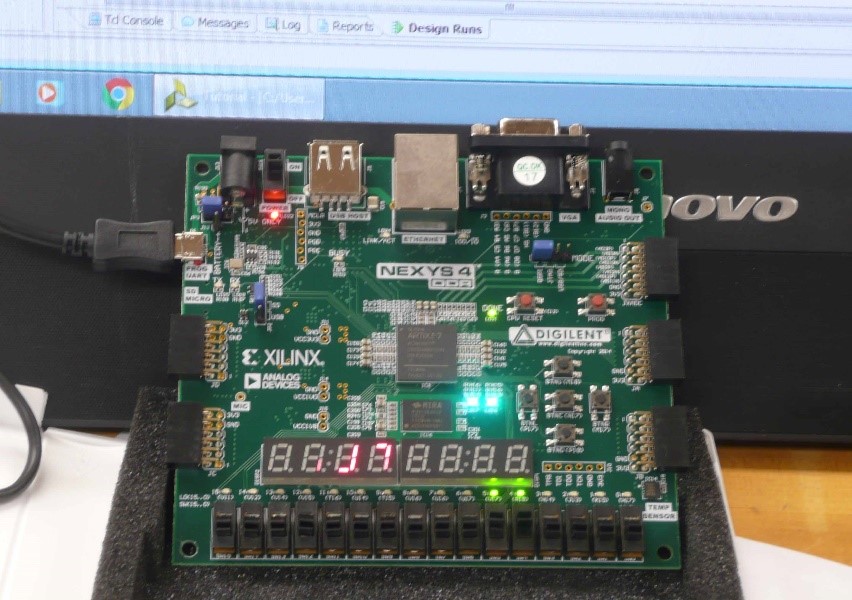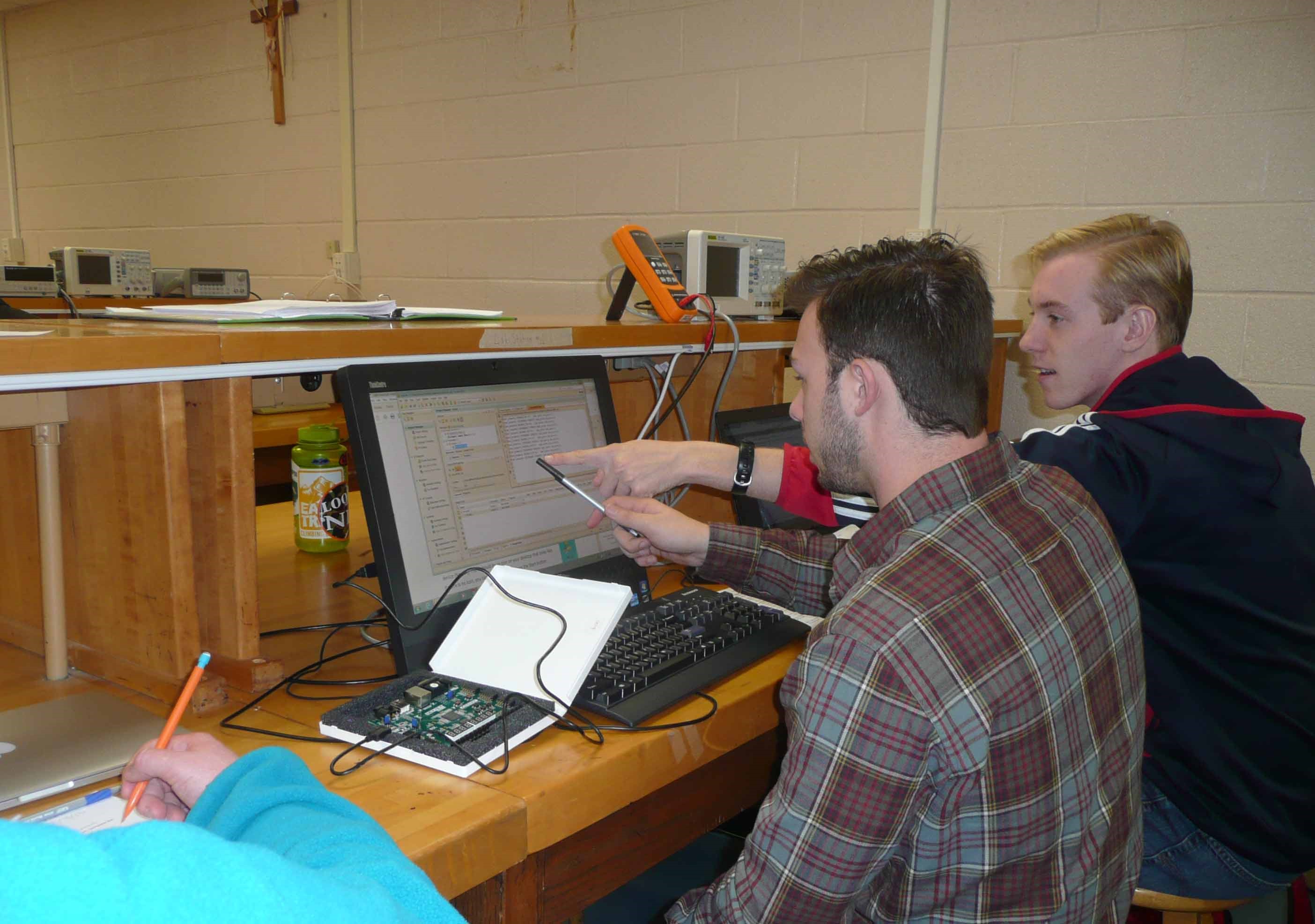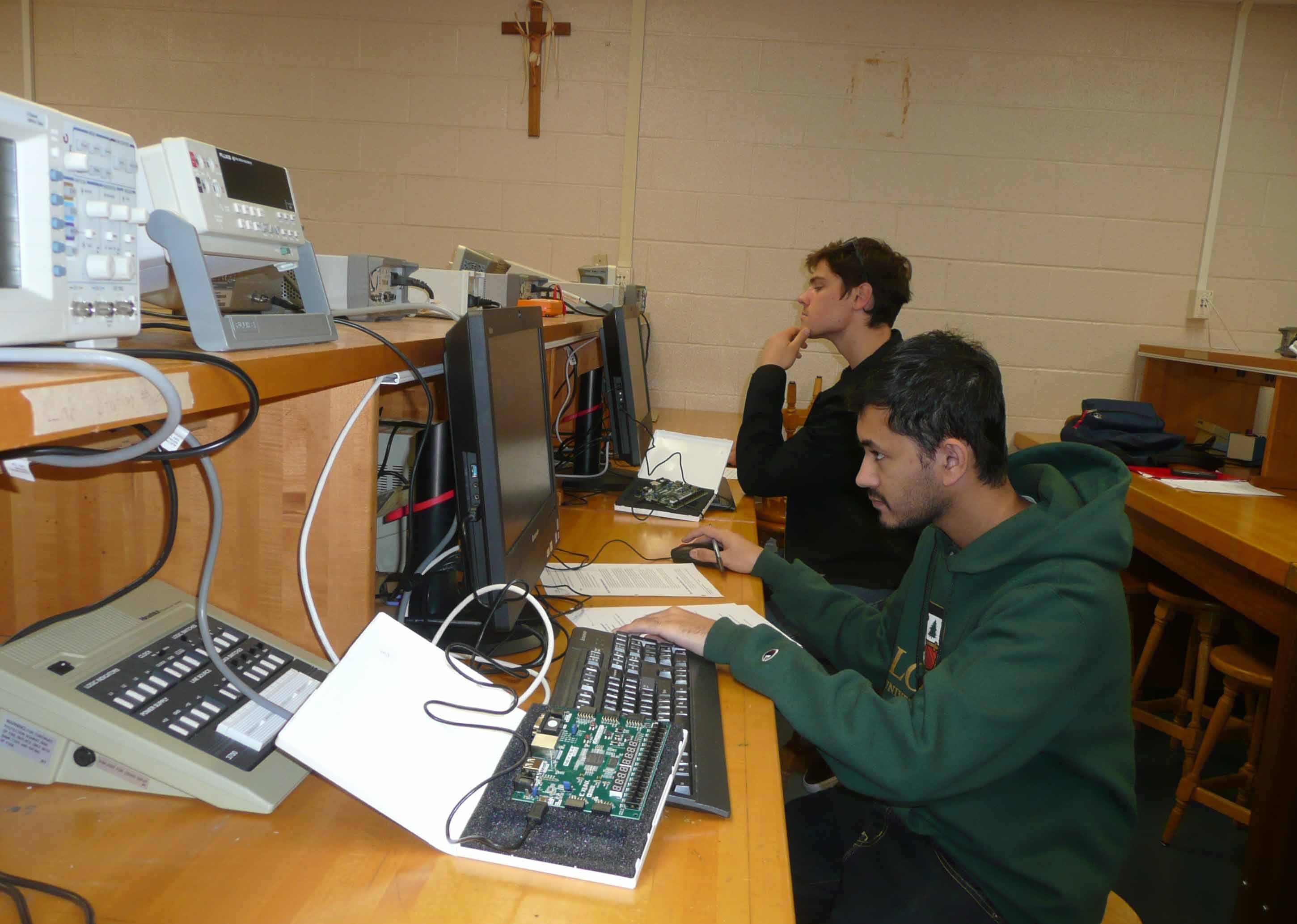New Course on FPGA Offered
A new course, FPGA Design, was offered in the Fall 2015 semester for Computer Engineering students. Field Programmable Gate Arrays (FPGAs) are complex logic devices which can be configured from a desktop personal computer. Dr. Hoe obtained an Academic Donation from Xilinx’s University Program, which equipped the Electronics laboratory with state-of-the-art hardware (Nexys 4 development boards) and design software (Vivado CAD tool). This has enabled the Engineering department to introduce a course that teaches students to implement digital logic designs using these cutting edge programmable logic devices.

The Nexys 4 FPGA development board is one of the newest boards from Xilinx Corporation. The computer engineering laboratory is equipped with 10 of these boards for teaching students how to design logic circuits from a desk top computer
FPGAs are advanced programmable logic devices that can be easily configured from a desktop computer. Because of their relative low cost and ease of configuration, they are revolutionizing the electronics industry. As FPGA designs are generally more cost effective solutions compared to full custom circuits, the number of new design starts using FPGAs has far outpaced full custom designs. Hence, students with the background to use FPGAs will be in much demand for doing design and research in the electronics and computer engineering industry.
The FPGA Design course teaches students to configure these devices using an industry standard high-level descriptor language (HDL). The students also learn about how the hardware works. Laboratory sessions integrated into the course give the students practical hands-on experience in working with these programmable logic devices.


Some photos of students in the FPGA Design course in the Fall 2015 semester.
One of the students who took the course in the Fall 2015 semester had this to say
about how the course was instrumental in getting an internship with the NSA:
"Being able to work with a real Xilinx FPGA chip in class gave me great insight into something that I will most likely end up working with in my future career in cyber security. When I went on an interview for an internship, the company representatives were amazed that this class gave me a hands on look at something so useful in this field of work and were very happy to hear that I was not only learning about the most up to date technology used but also that I was actually able to work with it and use it. This class has taught me very important things that I can take and directly apply to my work in an internship and a future career." – Brian Kane (Loyola Class of 2017)
The course is taught by Dr. David Hoe, who also does research in this exciting area. More details on his research using FPGAs can be found here.